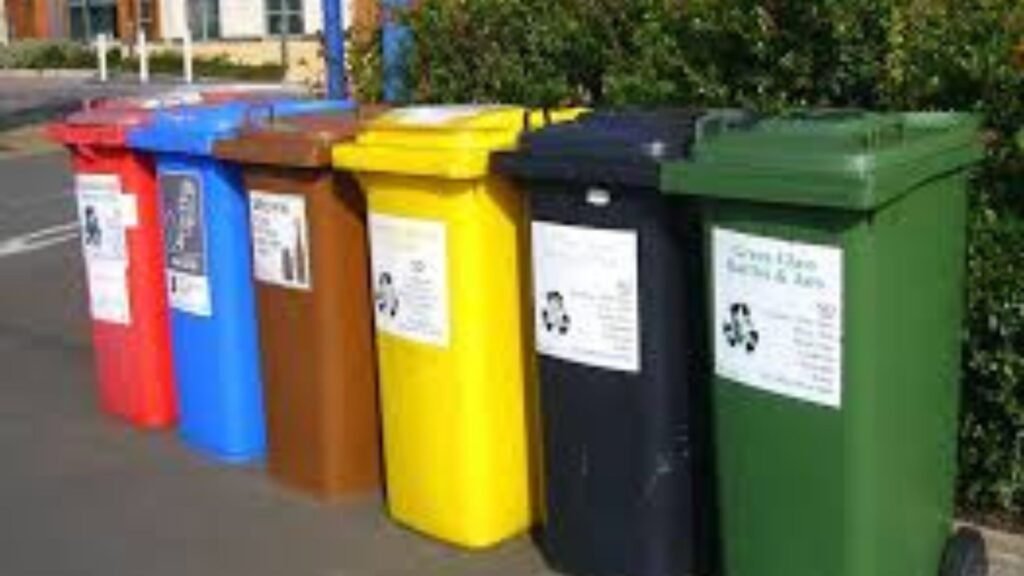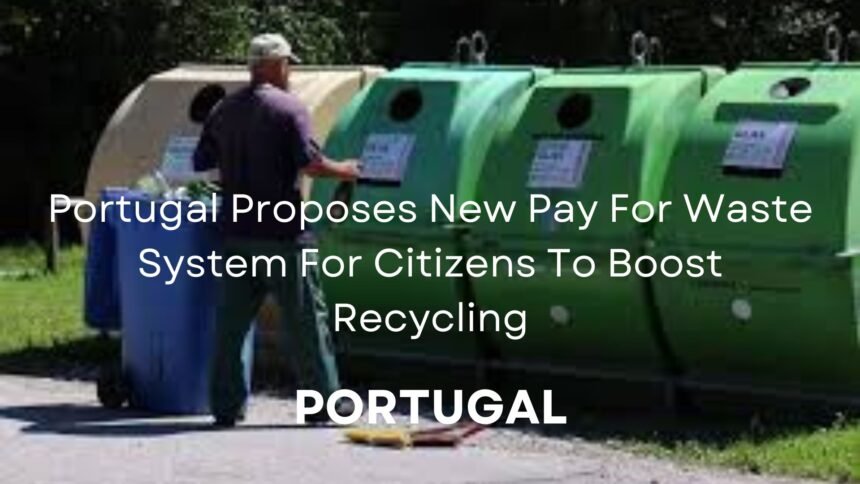Portugal Secretary of State for the Environment Emídio Sousa has suggested a new system for citizens to pay for their waste. He believes people should pay for the waste they create. The goal is to increase recycling and limit the usage of landfills. Sousa shared this idea during a visit to Ambigroup which is a company that manages and recycles waste in Seixal, Setúbal district.
Read More About: Portuguese Cycling Federation Brings Time Trial Final Back For Volta ao Algarve Cycling Race
Portugal New Pay For Waste System For Citizens

Sousa said Portugal is not doing enough when it comes to recycling. He said awareness alone cannot bring change. Financial incentives are necessary to convince people to recycle more.
He said:
We are far below what we should be doing in terms of recycling but we have to be pragmatic. Civic awareness and environmental awareness are not enough. We have to encourage citizens to recycle
The proposal is a system where households pay based on how much waste they produce. They earn rewards for the amount they recycle at the same time. This method has been used successfully in other countries and will work in Portugal too.
How The System Will Work
The new plan includes two parts. First people will pay for their waste. Second they will get money back for recycling. Sousa explained that a special working group is already exploring this idea. This group was set up in November to create a Landfill Emergency Plan and improve waste management.
Sousa explained:
At least that’s one of the suggestions I make. It means that everyone pays for the waste they produce and receives as a result of the recycling they carry out. There must be a balance here between what we deliver as waste, as trash, and what we do, the separation we make. It does not reach civic consciousness. It’s not enough, we’re not there
Sousa said the technology to make this system work already exists. Other countries use advanced tools to measure waste at homes. These systems can be adapted for Portugal. This way it will be easy to track how much waste each household creates and how much they recycle.
Sousa said:
One of the challenges facing the working group is to think, on a voluntary basis, that municipalities can join these systems. Because these are very high investments
He also noted that local councils will play a key role. These councils will need to invest in the system which will require a lot of money.
Meet EU Target For Reduce Waste
Europe has set tough targets for reducing waste and increasing recycling. Sousa said Portugal must act quickly to meet these goals.
He explained:
It’s not enough to write good diplomas, good laws, but then you have to comply with them. And that is the challenge we have
He stressed that landfills should only be used as a last resort. Recycle and reuse the waste before it reaches a landfill. This method will help Portugal comply with European rules and use resources more efficiently.
Recycling And Energy Recovery
Sousa’s plan focuses on separating and recycling materials. The waste sent to landfills can be decreased by recycling. Sousa suggested energy recovery for waste that cannot be recycled.
He said:
Energy can be produced from some of this waste that cannot be recovered. So that’s what we’re also going to do in the near future
Energy recovery involves turning non recyclable waste into energy like electricity or heat. This process helps reduce landfill waste and provides an additional energy source.
Current Landfills Improvement
Sousa acknowledged that the proposed system will take time to set up. In the short term, existing landfills need improvement. This includes small expansions or adjusting quotas to manage the current waste levels.
He said:
What needs to be done in the short term is to optimize the current landfills
These improvements will serve as a temporary fix while the new system is going to develop. Better management of landfills can help reduce their environmental impact during this transition period.
Benefits And Challenges
Implementing a system where people pay for waste will face some challenges. High costs, setting up new technology, and gaining public support are all issues to consider. But the benefits are significant.
Local councils will be key to making this plan work. They need to build better recycling systems and waste collection facilities. Sousa said council involvement will be voluntary because of the high costs.
Success will depend on cooperation between councils, the government, and private companies. Public education will also be important to explain the benefits and how the system works.





